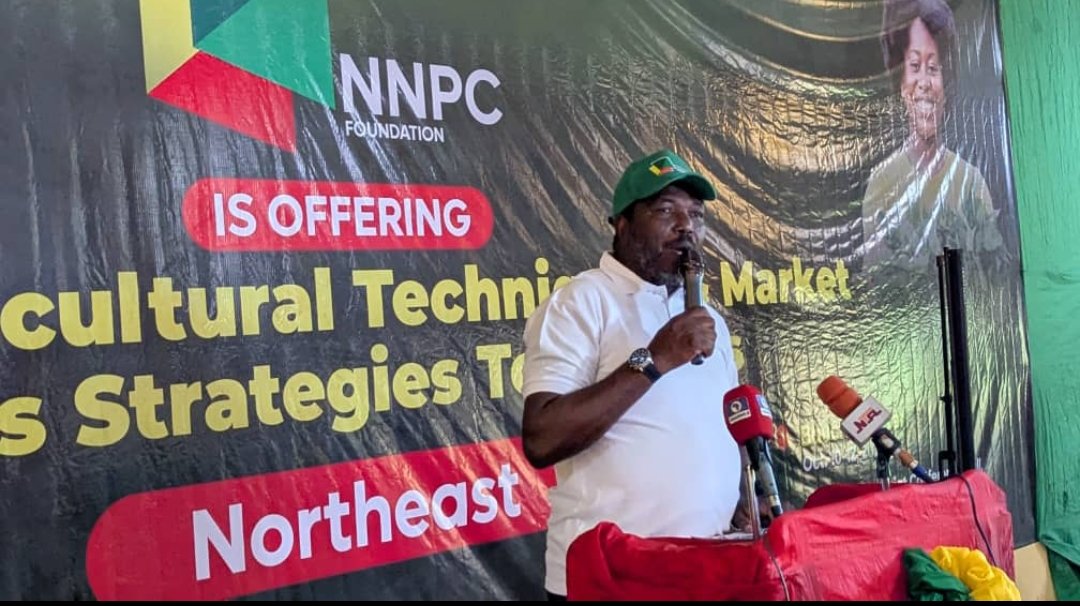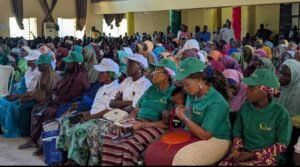
NNPC foundation inaugurates training for 900 vulnerable farmers in North-East
By Ahmed Abba
The Nigerian National Petroleum Company (NNPC) Foundation Ltd/Gte has launched the training of 900 vulnerable farmers in Borno, Yobe and Bauchi states.
The News Agency of Nigeria (NAN) reports that the NNPC Foundation Ltd/Gte is the Corporate Social Responsibility (CSR) arm of the Company, which focuses on enhancing Nigeria’s socio-economic development.
Speaking at the inauguration in Potiskum on Thursday, Mrs Emmanuella Arukwe, Managing Director, NNPC Foundation Ltd/Gte, said the training would enhance productivity and strengthen food security in the country.
Arukwe, who was represented by Dr Bala David, Executive Director, Programme Development, said the programme reflected the Foundation’s commitment to national development beyond energy.
She noted that the programme had empowered and equipped no fewer than 11,000 farmers across five geopolitical zones in the country.
“The programme has traversed the length and breath of our country, reaching farmers across five geopolitical zones so far : South-East, South-South, South-West, North-Central, and most recently North-West.
“The objective of this programme is clear. We aim to equip vulnerable farmers, especially women and youth, with practical skills and market knowledge.
“To move households from subsistence to sustainable income and greater resilience,” the managing director said.
She said that the initiative would also focus on interventions that would boost productivity, reduce losses, and expand market access, especially for rural farmers.
Arukwe said participants in the North-East phase would be trained in climate-smart agriculture, soil management, post-harvest handling, financial literacy, cooperative formation and the use of digital tools for market access.
She explained that the sessions would be practical and participatory, featuring expert lectures, hands-on demonstrations, group work, question-and-answer forums, and clinic sessions.
The managing director added that translators, fluent in Hausa and other local languages, would also be hired for inclusivity.
Arukwe urged farmers to take full ownership of the training, adding that the programme’s success would be measured by higher yields, stronger cooperatives, and improved livelihoods.
She commended government agencies, traditional leaders, facilitators, and development partners for supporting the programme.
The managing director emphasised that the collaboration was essential for achieving food security and community resilience.
A beneficiary, Malam Iliya Adamu, thanked Allah for the opportunity and commended the Foundation for the initiative, urging other organisations to emulate the gesture.
Another beneficiary, Mrs. Kuceli Bata, who spoke on behalf of women participants, said the training had exposed them to modern farming methods.
“Many of us did not know how to apply new techniques on our farms.
“But now we have learnt how to use resources such as Moringa leaf and other practices to improve crop yield. We are grateful for this opportunity”, she said.
NAN

